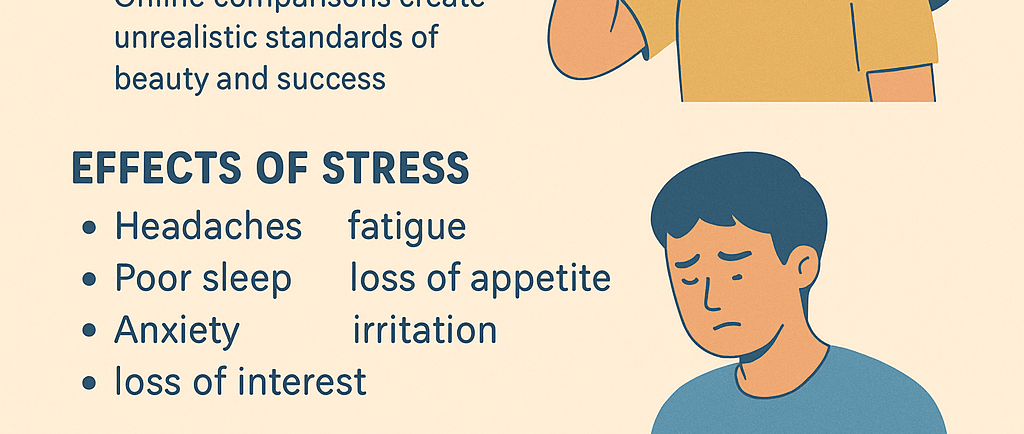Stress Management for Teenagers
Blog post description.


Teenage years are often called the most exciting yet challenging phase of life. This is the time when young people experience rapid physical growth, emotional changes, academic pressure, and social expectations. With exams, peer competition, social media, and even family expectations, it is natural for teenagers to feel stressed. Stress, if not managed properly, can affect health, studies, and even self-confidence. Therefore, learning how to manage stress is an essential life skill for every teenager.
Causes of Stress in Teenagers
One of the main sources of stress is academic pressure. The constant need to score well in exams, prepare for competitive tests, and meet parental expectations can feel overwhelming. Peer pressure is another factor, where teenagers often compare themselves with friends in terms of looks, popularity, or achievements. Social media adds to this, as online platforms sometimes create unrealistic standards of beauty and success. Apart from this, conflicts at home, misunderstandings with friends, or uncertainties about the future can also become stress triggers.
Effects of Stress
When stress becomes too heavy, it starts to affect both mind and body. Teenagers may experience headaches, fatigue, poor sleep, or even loss of appetite. Mentally, they may feel anxious, irritated, or lose interest in activities they once enjoyed. In extreme cases, unmanaged stress can lower confidence, harm relationships, and reduce performance in studies. That is why stress management is not just useful but absolutely necessary
1. Time Management – Planning study schedules, breaking big tasks into smaller steps, and avoiding last-minute exam preparation can reduce unnecessary pressure.
2. Healthy Lifestyle – Regular exercise, enough sleep, and a balanced diet keep both body and mind strong. A simple walk, yoga, or playing outdoor games can work wonders.
3. Relaxation Techniques – Breathing exercises, meditation, or even listening to calming music can quickly reduce stress levels.
4. Positive Thinking – Instead of worrying about failure, focusing on strengths and achievements builds confidence. Replacing negative thoughts with hopeful ones makes challenges easier to face.
5. Limiting Social Media – Using the internet wisely, instead of comparing oneself to others, saves teenagers from unnecessary pressure.
6. Seeking Support – Talking to parents, teachers, or friends about problems can provide comfort and guidance. Sometimes, professional help from a counselor may also be needed.
Conclusion
Stress is a natural part of teenage life, but it should never become a permanent burden. By practicing healthy habits, maintaining balance, and seeking help when needed, teenagers can learn to face challenges with confidence. Stress management is not about avoiding problems, but about developing the strength to deal with them in a healthy way. When teenagers learn this skill early, they not only do well in school but also prepare themselves for a successful and happy life ahead.
